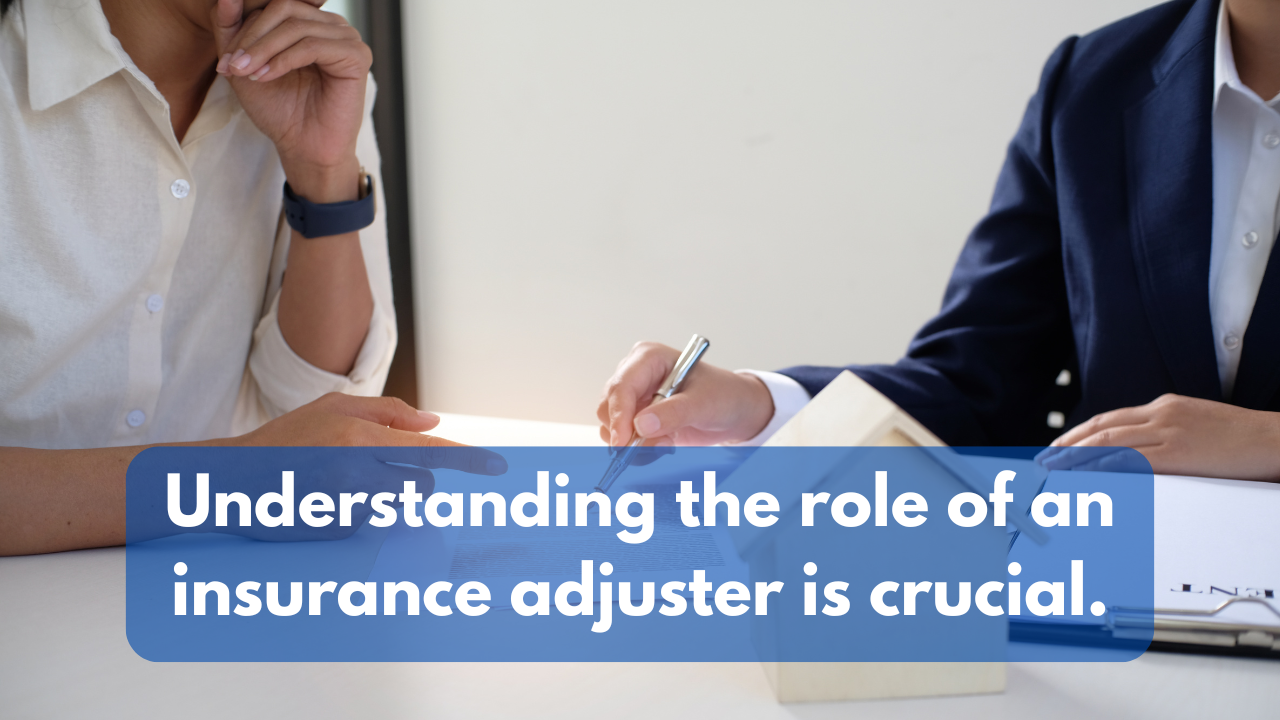Insurance Adjusters: What to Expect and How to Get a Fair Settlement

What’s going on behind the scenes after you file an insurance claim?
After a car accident, natural disaster, or property loss, you're likely feeling overwhelmed—and then, an insurance adjuster reached out to you. They seem friendly, professional, and efficient, but what exactly are they doing? And more importantly, are they working for you… or the insurance company?
What are you risking if you don’t understand their role?
If you don’t know how insurance adjusters operate, you could unintentionally walk away with less than you deserve. Many claimants unknowingly accept the first settlement offered, assuming it’s fair. Unfortunately, that’s not always the case. A lack of clarity here can cost you thousands—and often does.
Our hopes are that after reading this post that you understand how to protect your interests.
In this article, we’ll break down exactly what an insurance adjuster does, the common strategies they use, and what steps you can take to secure a fair settlement—even without being an expert negotiator. Whether you’re in the middle of a claim or preparing for the future, this will give you the confidence and clarity you need to move forward.
You’ll learn what adjusters look for, how they assess damage, and how to effectively respond.
Let’s get started.
What Does an Insurance Adjuster Actually Do?
Insurance adjusters work for the insurance company—not you. Their primary role is to investigate claims and determine how much the company should pay. They evaluate evidence, interview witnesses, and inspect damage.
There are three main types:
- Staff adjusters (employed directly by insurance companies)
- Independent adjusters (contracted by insurers)
- Public adjusters (hired by policyholders—you)
Understanding who’s evaluating your claim helps you recognize where their interests lie.
Common Adjuster Tactics You Need to Know
Many adjusters aim to settle quickly—and cheaply. While not all are manipulative, it's common for them to:
- Offer fast settlements before the full extent of damage or injury is known
- Downplay the severity of damage or liability
- Use complex jargon to discourage questions
- Pressure you into recording statements that can later be used to reduce your payout
These strategies are designed to protect the insurance company’s bottom line.
How to Prepare for the Adjuster’s Visit
Documentation is your strongest defense. Before meeting with an adjuster, do the following:
- Take thorough photos/videos of all damage
- Keep receipts for temporary repairs or replacements
- Obtain repair estimates from licensed contractors
- Write a timeline of events while it's fresh in your memory
This helps you back up your claim with facts—not just feelings.
Should You Hire a Public Adjuster?
If your claim is large or complex, it may be worth it. Public adjusters advocate for you and often secure significantly higher settlements. While they typically charge a percentage of the final payout (usually 10–20%), their expertise can pay off—especially if your insurer is being uncooperative.
The Bottom Line: Protect Yourself, Not Just Your Property
Insurance claims are emotional, but they’re also business transactions. Understanding how adjusters operate gives you power in a situation where it’s easy to feel powerless.
Ready to Take Control of Your Claim?
After reading this, you now understand what’s happening when an adjuster steps into the picture—and how to prepare for a fair settlement. But don't stop here.
Your next step? Read our post on What To Expect When Filing a Home Insurance Claim, to ensure you’re presenting your strongest case from day one.
If you're dealing with a claim right now, or simply want peace of mind before the next storm,
schedule a call with our team. We’ll walk you through your rights, responsibilities, and the smartest next moves—so you don’t leave money on the table.


